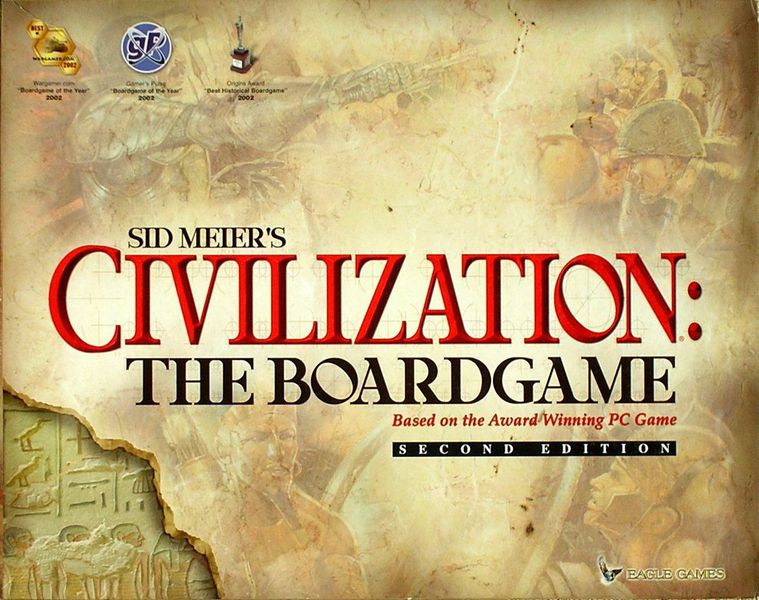Sid Meier’s Civilization: The Boardgame (2002) Board Game
Sid Meier’s Civilization: The Boardgame is a board game adaptation of the popular video game series, Civilization, created by designer Glenn Drover and published by Eagle-Gryphon Games in in 2002. The game allows players to build their own ancient civilizations, explore new territories, engage in diplomacy, and compete for victory points through various means such as cultural achievements, military conquest, and technological advancements.
Game Components of Sid Meier’s Civilization: The Boardgame
How To Setup Sid Meier’s Civilization: The Boardgame
To set up the game, players first place exploration markers face-down on each land region of the board. Each player starts with two settlements, each containing a town, a settler unit, and a swordsman unit, on a land region of their choosing. In the advanced rules, each player also begins with one technology. Players then uncover the exploration markers in their starting regions, following any effects if necessary.
Gameplay Mechanics and Game Objective
Gameplay Phases
Game Objective
Player Experience
Playing Sid Meier’s Civilization: The Boardgame is an immersive experience that spans multiple eras, from ancient to modern. Players advance through ages, research technologies, build and expand their settlements, and engage in military conflicts. However, the game is known for its lengthy gameplay, often taking 2.5 hours or more, especially with more players. The randomness in resource allocation can significantly impact the game, making early advantages often luck-based rather than strategic.
Pros
Cons
Personal Thoughts on Sid Meier’s Civilization: The Boardgame
This game is for fans of empire-building and strategy games who are willing to invest significant time and effort. It is not ideal for casual gamers due to its complexity and lengthy gameplay. However, for those who enjoy deep strategic gameplay and the Civilization series, it offers a rich and engaging experience. If you’re looking for a quicker alternative, games like Through the Ages or other civilization-themed board games might be more suitable.
We are supported by our audience. When you purchase through links on our site, we may earn an affiliate commission, at no extra cost for you. Learn more.

